|
29th July 2021
Impromptu gaming Thursday on Board Game Arena concluded with Love Letter. Read my blog about it here.
0 Comments
29th July 2021 Thursday is here and it's time for some gaming on Board Game Arena. If racing isn't your thing but rolling is, then maybe you'll prefer Roll for The Galaxy to the excellent Race for The Galaxy. Roll for The Galaxy is a follow up to the aforementioned game and both are thematically similar. Both games have the same 5 phases (Although not in the same order!) and both are about are about building settlements and developments to create an engine building tableau in order to win. Mechanically, there are numerous differences though. Roll for The Galaxy uses lots of different dice and dice rolling to manage phases as well as provide workers to build with. Gone is the card-based economy of Roll for the Galaxy. What's in a game?
All the games tiles are made of sturdy grey board and are suitably thick. The currency meeple is a nice little wooden token that matches colour with a dice cup, speaking of which, the cups are made of pretty standard plastic but are easily tough enough to stand up to repeated use. Finally, the victory tokens are made of standard card token chips and are probably the most average component in the game, which is to say the components are all good quality. Anyone familiar with Race for The Galaxy will recognise the art style on the tiles. How much of it is new and how much is recycled from Race, I couldn't say. Ultimately though, it's fairly good artwork. How's it play? Setup
Roll for The Galaxy is played out over 5 different steps, each player carries out each step simultaneously.
Endgame Play progresses until either a player has completed the 12th tile in their tableau, or the supply of victory point tokens has been depleted. Players now calculate the total cost/value of completed tiles in their tableau and victory points accumulated, furthermore; some developments will have criteria that score players additional points. All points are tallied, highest score wins. Overall
Players of Race for The Galaxy (Like me!) will recognise a lot of familiar theme and ideas in Roll for The Galaxy, it's quite clever how this has been achieved, although there are some differences. For example; in Race for The Galaxy, a player's hand is also their currency, in Roll for the Galaxy though, players have no hand. The game introduces a currency track to replicate this and at first I thought it felt a little superfluous, after all, currency is only used to recover dice from the Citizenry space, then I realised without the need for currency, the decision to choose between a game tile and currency in the Explore phase becomes unnecessary as does the decision to to choose between victory points and currency in the Ship phase. There is no military score, instead military dice provide extra opportunities to develop and settle. Curiously, Roll for The Galaxy swaps the Produce and Ship/Consume phases round and trading is now the 5th and final phase. I guess that this decision was taken to make it a little easier to players to produce and then trade goods in the same round? Additionally, because Roll for the Galaxy is a 5-player game, it possible for all phases to be activated. It's never been possible to activate more than 4 phases in Race for The Galaxy. Finally; constructing developments and settlements is quite different: In Race for The Galaxy, it's a all-or-nothing affair, either you have the cards to pay for a development/settlement or you don't. Roll for The Galaxy allows player to incrementally pay for them, however, this ties up dice in construction, as a consequence players will have less dice and therefore less choices When rolling at the start of the round. But enough of talking about another game, let's talk about Roll for The Galaxy. In Roll for The Galaxy, players will be to some extent at the mercy of the dice they roll at the start of a round. If you're looking to finish constructing a settlement and you get no settlement dice - tough luck! Obviously there are rules to mitigate some of this and furthermore, correct usage of the different types of dice (Provided you get hold of them.) at the right time can be helpful and skew results in a player's favour. But on occasion, players will have to react to dice rolls that just don't go their way! Adaptation is the key here. Even so, it can prove frustrating at times when you can't do what you want to. Additionally, acquiring certain types of dice which may push players into strategies they hadn't considered before, Another aspect to remember when assigning dice, is to pay attention to what other players have been doing, successfully anticipating another player's choice of action can prove useful and provide extra actions to spend. Players must balance the need to acquire developments and settlements with the need to produce and trade, this also means balancing the use of limited resources to construct improvements with the need to have actions. Building an engine is vital, getting the special abilities provided is important, but so is acquiring extra dice to roll, which gives players more choices elsewhere. Players will want to do all of this as efficiently as possible to outpace their opponents In short; Roll for The Galaxy always provides players with meaningful decisions. I'd happily play Roll for The Galaxy again in the future, but given the choice between this and Race for The Galaxy, I'd choose the latter every time. Roll for the Galaxy is a good and fun game but I sometimes find the randomness off putting. If dice games are your thing over card games for some reason, Roll for the Galaxy is definitely worth a look. 29th July 2021
It's was an impromptu gaming Thursday on Board Game Arena and the next game of the evening was Dice Forge. Read my blog about it here. 29th July 2021 It's a Thursday and we're logged into Board Game Arena for some gaming entertainment. The first game was Martian Dice, it turns out that in Martian society abducting humans is a highly popular and competitive past time, players take the role of opportunistic Martians, flying around looking for hapless humans to kidnap as well as those old favourites - cows and errrrr.... chickens? Meanwhile, they'll also have to dodge all those pesky Sherman tanks sent by the US Government to harass them. Caveat: We've only ever played Martian Dice digitially. What's in a game? You'll be unsurprised to learn that Martian Dice is a dice game that comes with 13 standard 6 sided dice. All dice are identical and come with the following symbols on their faces.
How's it play? Martian Dice is a pretty straightforward push your luck game and players can continue rolling dice until they choose to or are forced to stop.
Endgame The game continues until a player scores 25 or more points, then the current round is concluded. Points are tallied, highest score wins. Overall This is usually where I blog about what I think of a game, but with Martian Dice, it's a little trickier. This is because at the time of writing, we've only ever played the game digitally and the version of Martian Dice we played on Board Game Arena appears to be quite broken! Why? In a word (Or acronym.); R.N.G. - random number generation. Computers can't actually, truly, generate numbers randomly, they can only do an approximation of it and any game that contains any random element will be affected by this to some lesser or greater degree - and that's probably most tabletop games on Board Game Arena! So why am I singling out Martian Dice? In game that's only about throwing lots of dice, when the randomness does go skew-whiff, it can become readily apparent. Look at the examples below. I don't know the odds of the rolls that occurred above, but they must've have been very long. These kinds of results weren't particularly uncommon either, every few rounds something would pop up that just looked too improbable.
This skewed randomness did however, generally appear to affect all players equally which mitigated it somewhat, but it did alter the way we played the game. Anyway back to my conclusion. Martian Dice really only ever gives players 2 decisions to make. What dice shall I keep? Should I continue my turn or not? Luckily, at least 1 of these decisions is generally always a meaningful decision. Players will only get 3 scoring opportunities per turn, they'll sometimes be faced with the decision of scoring fewer points now and locking out that scoring type or hoping to get a better result later at the risk of getting 0 points. It can put players in a painful predicament - in a good way! The other key hard decision players will have to make is choosing to put aside scoring dice or death-rays to battle tanks, especially as invariably a couple of tanks will have turned up. Go for the points now and hope to be able to deal with the tanks later? Or deal with the tanks now and hope points will turn up on another roll, albeit one with fewer dice? Perhaps a player will get lots of death-rays early on; they could put them aside to deal with tanks that will appear in later rolls, on the other hand, putting aside this many death-rays lessens the chances of getting scoring results. Finally players will frequently have to decide whether to push their luck or not. Because of how the scoring mechanism works, it obvious when there's no point pushing on and when it's got a chance to score more points. The question is; is it worth the risk? Sometimes players will have to roll because they've got too many tanks in play, other times - well getting just one of that type a player hasn't got would score 4 extra points! However, if the tanks and death-rays set aside are close in numbers, an unfortunate roll will bust they player. All of these decisions will of course be contextual, but the game gives players a fairly clear risk/reward choice to make. Martian Dice is a light, quick to learn and play, luck-based (sic) game, it definitely has some nuance and strategy but it will also appeal to fans of push your luck mechanics. If you want a game not too taxing on the grey matter and works as a filler, Martian Dice could work well for you. We found it a good finisher at the end of an evening of play. 28th July 2021
Impromptu gaming Wednesday at The Sovereigns in Woking was concluded with Port Royal. Read my blog about it here. 28th July 2021 We were at The Sovereigns in Woking on a Wednesday for an impromptu evening of gaming. It's a Wonderful World, where you can lead a idyllic, tranquil life, except It's a Wonderful World is anything but! It's a dystopian, industrialised future in which competing factions vie for resources to create the most powerful empires. It's a Wonderful World indeed. What's in a game?
The development cards contain quite a lot of info, but the iconography is consistently clear and they never feel cluttered. The art used throughout the game is consistently good, colour is also well used, making the game bright and eye catching. It's a bit of a shame that when development cards become stacked, the art is no longer visible. so a thumbs up for the presentation. How's it play? Setup
On to play. It's a Wonderful World is played over 4 rounds and each round has 3 phases, drafting planning and production. The planning and production phases occur simultaneously and have no turn order
Endgame Once the 4th round has been completed, player calculate their scores. Some cards will provide a straight victory point score. General/financier tokens provide a victory point each. Finally, some cards have scoring combos dependant on other cards or the general/financier tokens. Points are tallied, highest score wins. Overall
It's a Wonderful World is fairly straightforward to learn and play, in truth, having to collect resources 5 times over in a round actually sounds a lot more fiddly than it is in practice. The game's engine-building, tableau-creating, simultaneous-play, card-game style has some similarities to some other games we've played such as Race for the Galaxy. While it has less depth, it's also more accessible, players will have less trouble creating engines and combos. The game also has a slightly different take on some of these concepts. Firstly there's drafting; what's interesting here is that players put cards they've drafted into their area face-up during the drafting phase face-up for everyone to see. In high-level play, it's possible for players to try and anticipate what their opponents might be looking to use and keep cards they might want from them. Fairly frequently in games (Especially euro-games.) a player trying to screw over an opponent can also screw themselves over, but in It's a Wonderful World, development cards can always be discarded for resources, so sometimes in can be a legitimate move. Secondly; how the timing of resource acquisition meshes with the game's engine building mechanic is interesting and presents an unusual approach to exploiting those engines. For example; if a player completes construction of a development card that required grey cubes, that card goes straight into their empire's stack and if that card then produces black cubes, then the player will get those cubes when the black resource production phase comes round and they can then be used to complete development cards which require black cubes. Knowing when to complete which development card and in which order will greatly increase the building efficiency of an empire. Many engine-builders allow players to do a the perform a wider variety of tasks but the simpler gameplay of It's a Wonderful World has a clear and concise gameplay loop, constructing development cards allows players to gain more resources to construct even more development cards to get even more resources and so on. In round 1, players will probably end up discarding 5 of the cards they drafted for the resources to try and build 1 or 2 of those development cards. This puts players in the classic quandary of deciding what they have to discard and all the cards will be useful in some way. By the time round 4 arrives however, it'll probably be the inverse, players will be discarding only 1 or 2 cards to try and build 5 in a round as their engine gets stronger and stronger. It's a satisfying experience to watch it at work. All of this adds up to make It's a Wonderful World feel different enough to justify it's existence. If you like this style of game, it's definitely work a look, I do and I'd happily play it again. 27th July 2021
We're gaming on at The Sovereigns in Woking with the Woking Gaming Club. The 2nd and final game of the evening was Honshu, read my thoughts about it here. 27th July 2021
Tuesday had arrived and it was time to join the Woking Gaming Club in The Sovereigns for some gaming fun. The first game of the night was Isle of Skye, read my blog about it here. 25th July 2021
Gaming Sunday on Board Game Arena comes to a conclusion. The final game of the evening was Railroad Ink, read my blog about it here. 25th July 2021
Sunday gaming on Board Game Arena continued. The next game was Love Letter, read my blog about it here. |
AuthorI play, I paint. Archives
March 2024
Categories
All
|

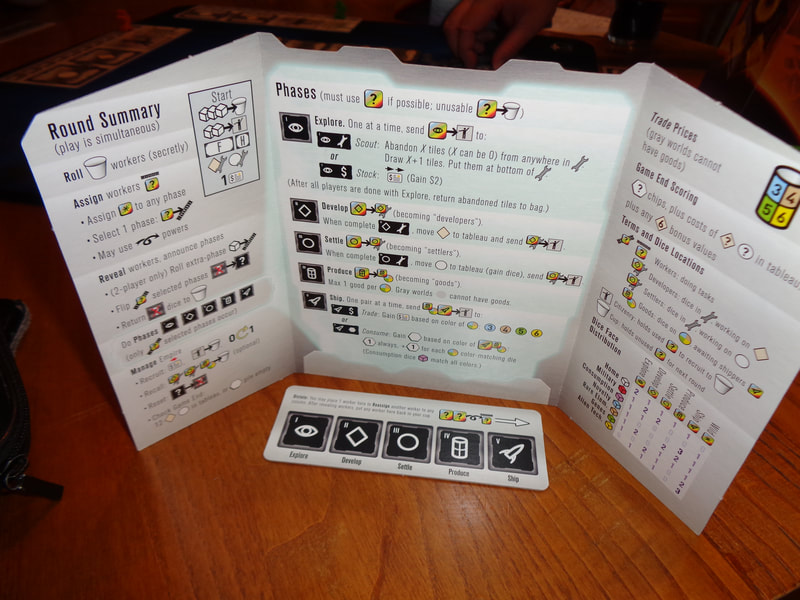
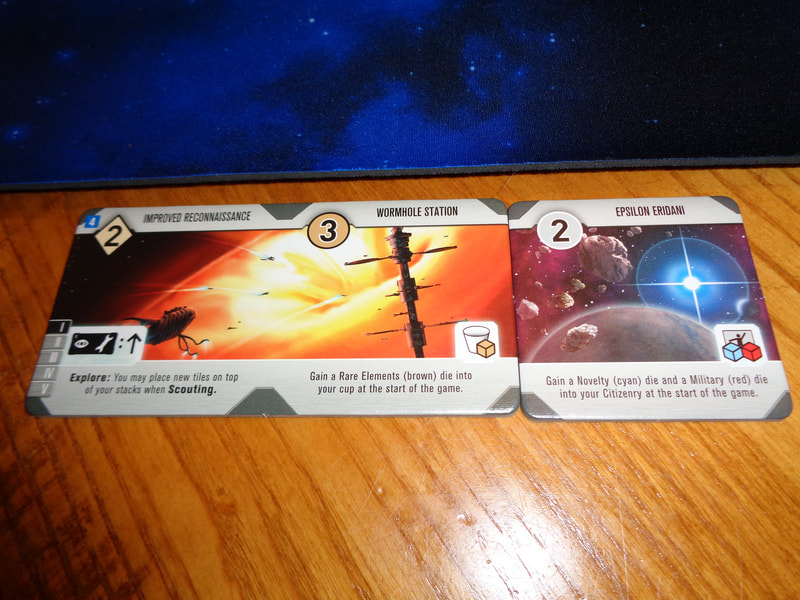
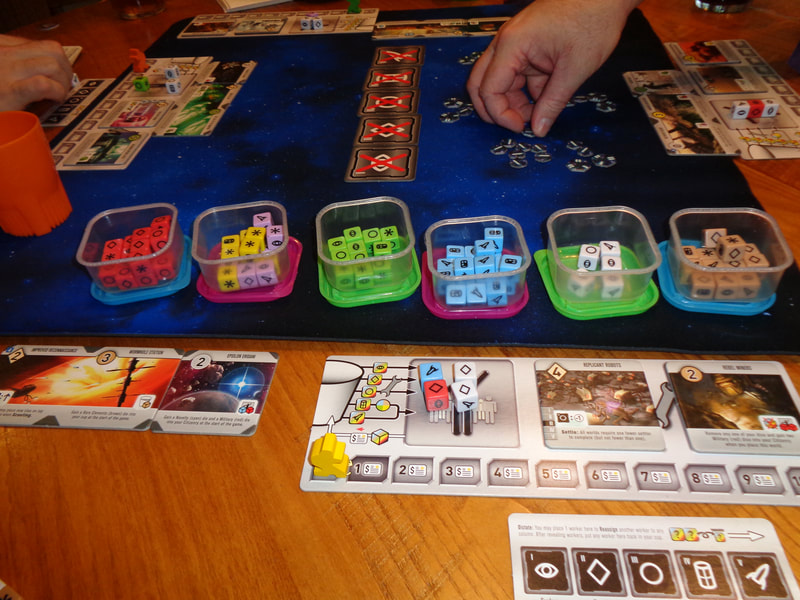
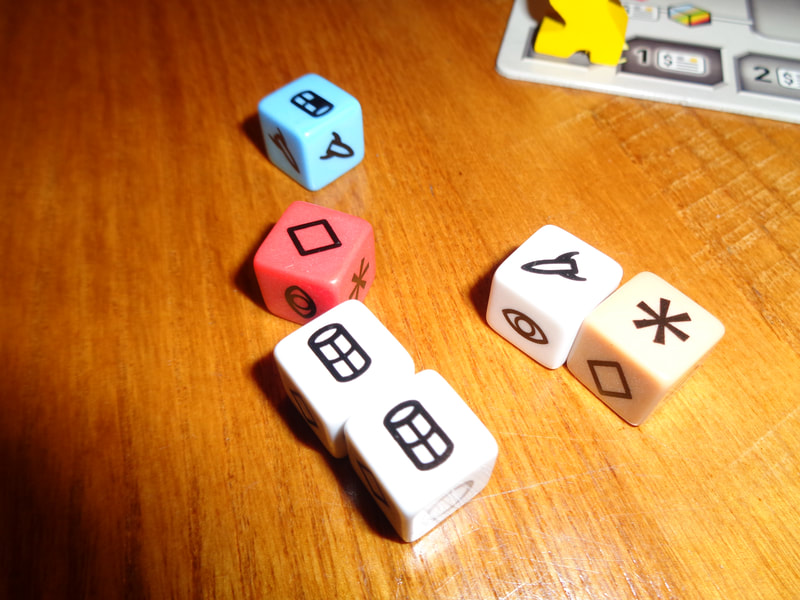
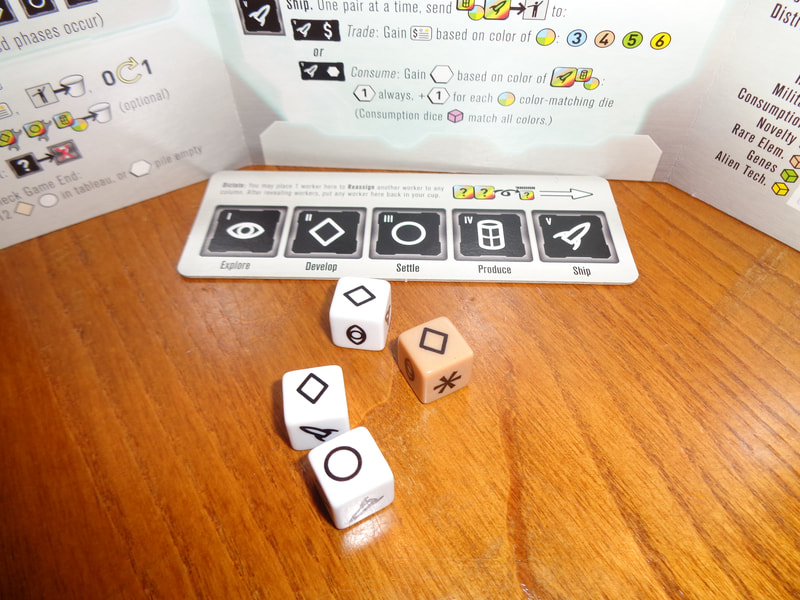
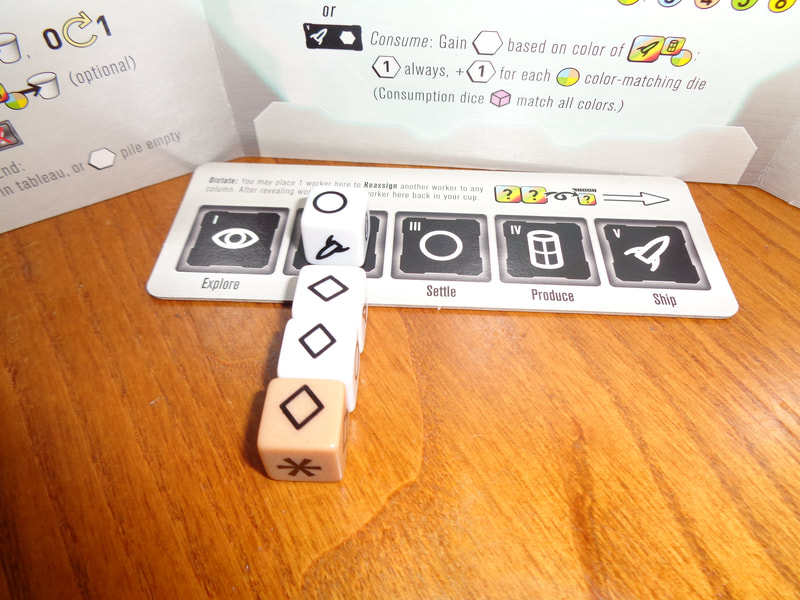
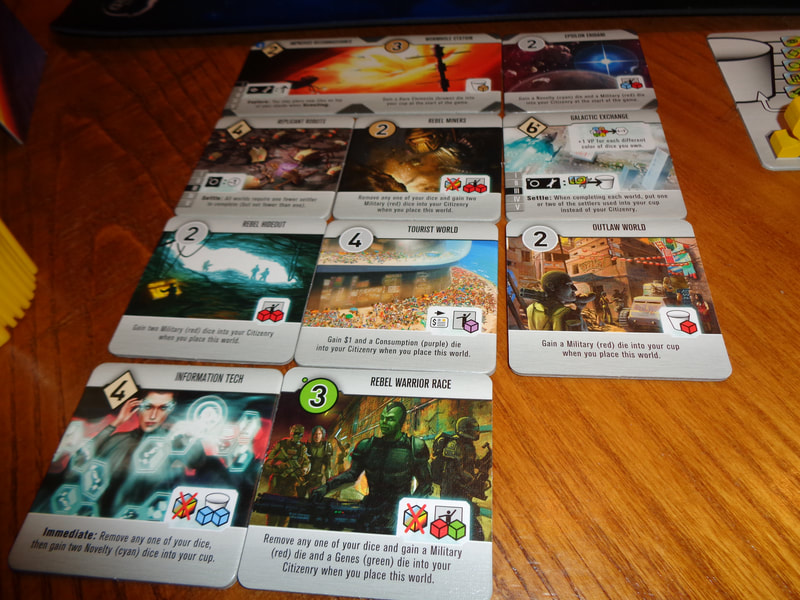
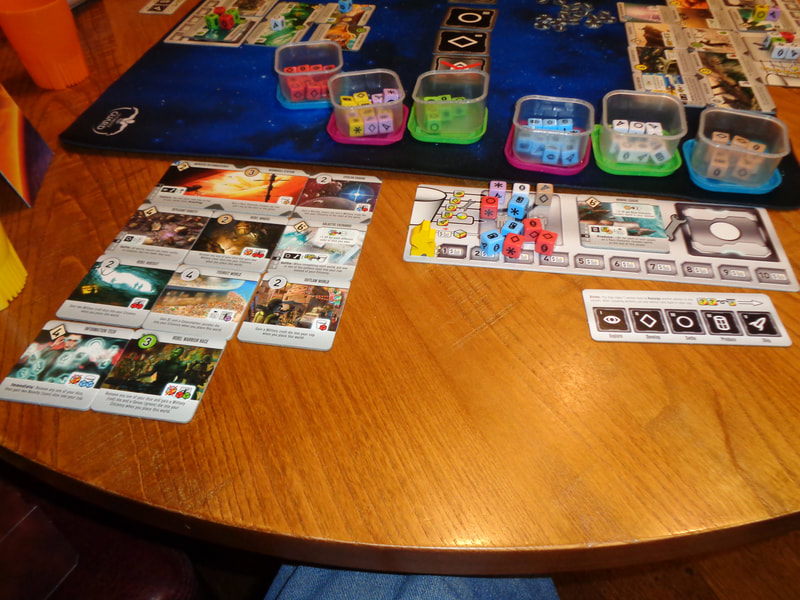
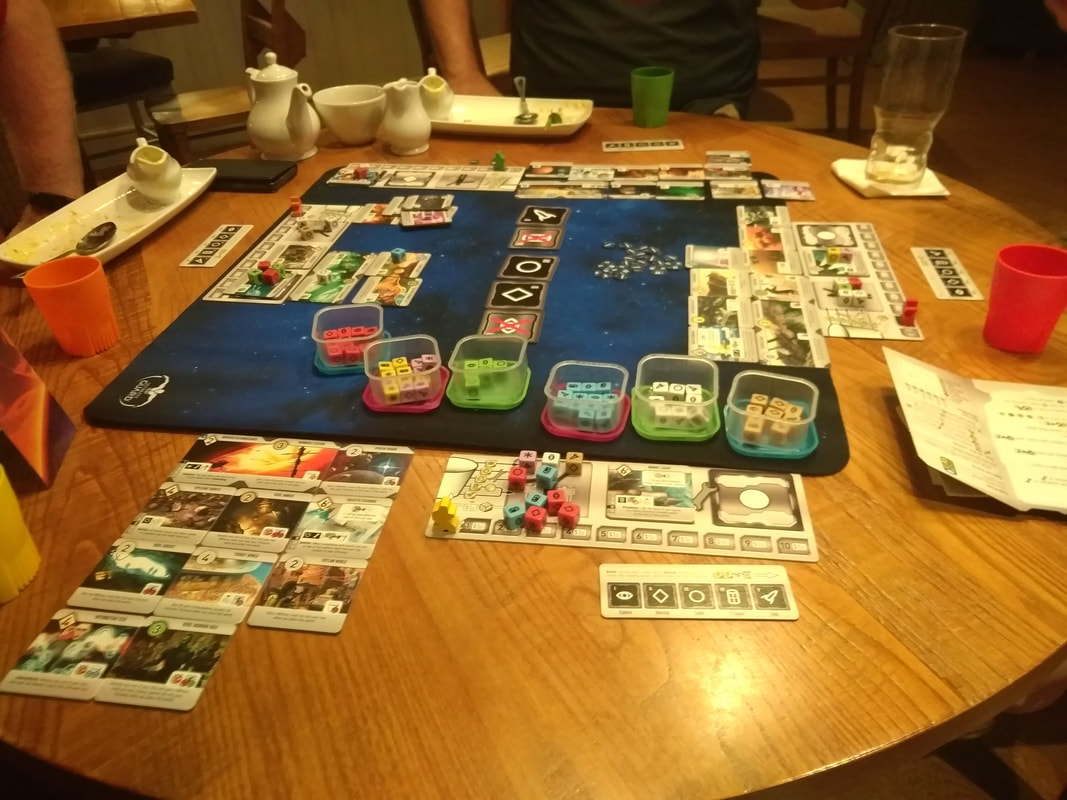
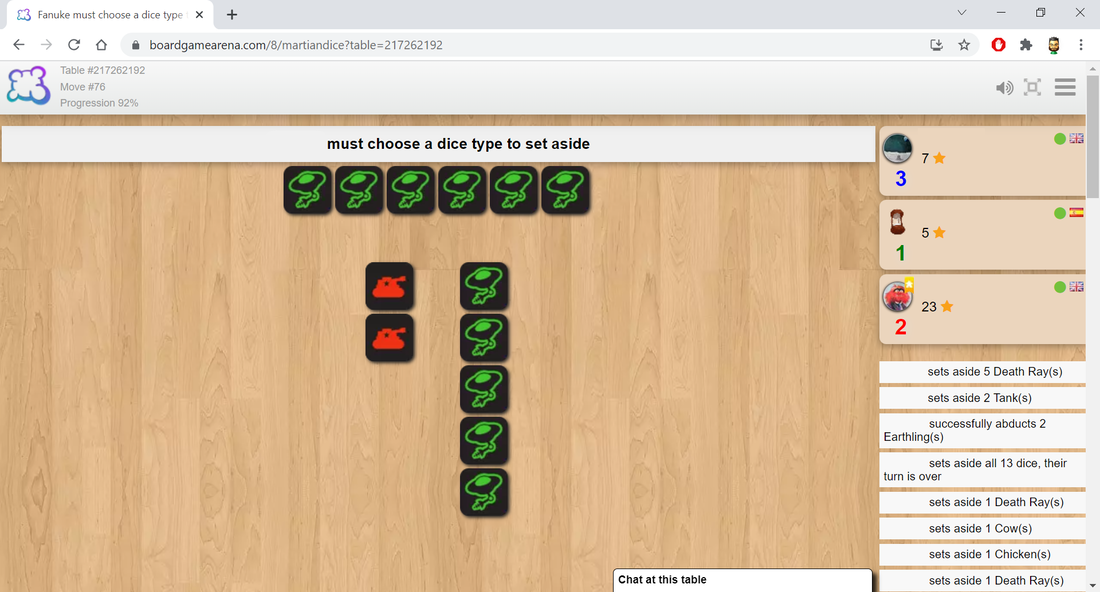
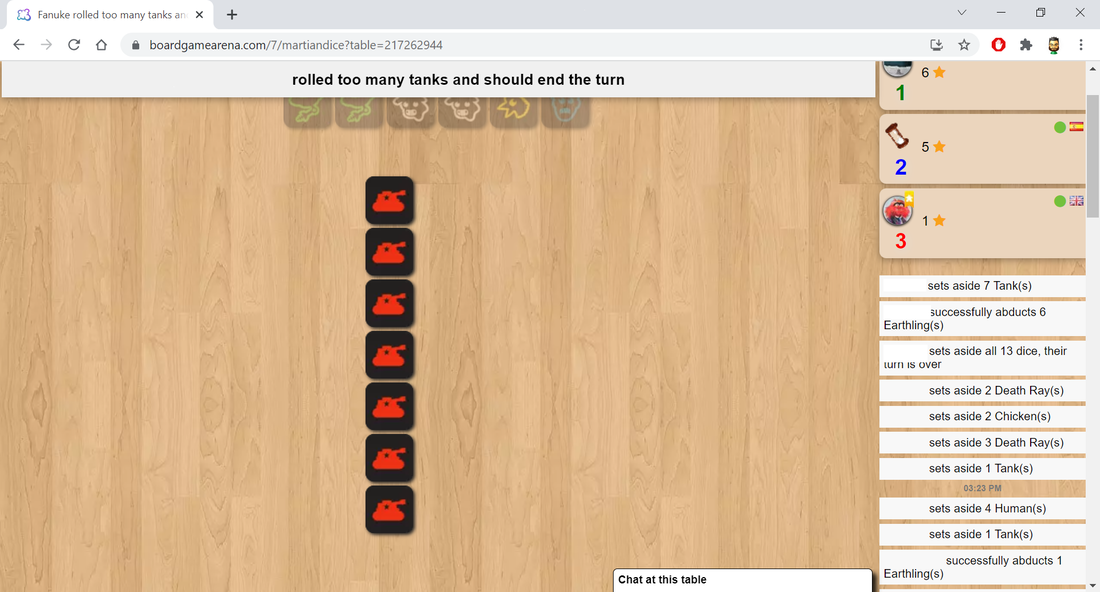
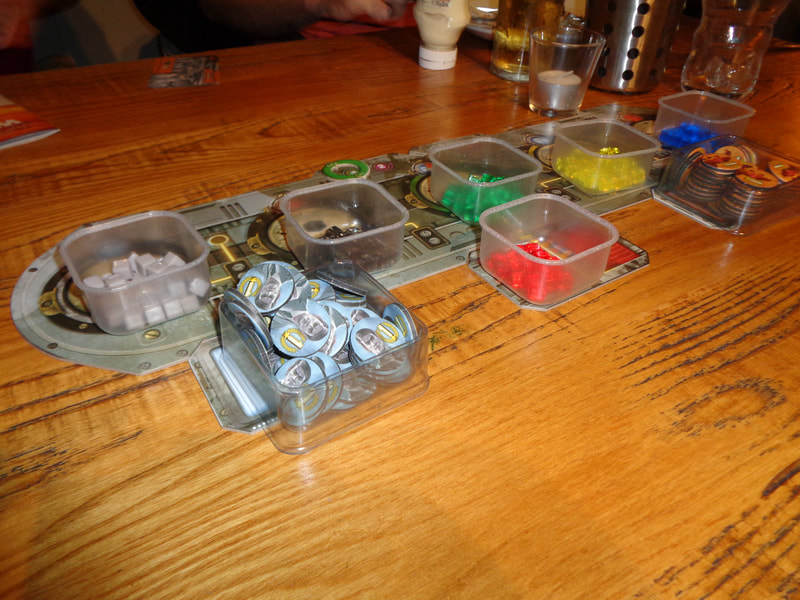
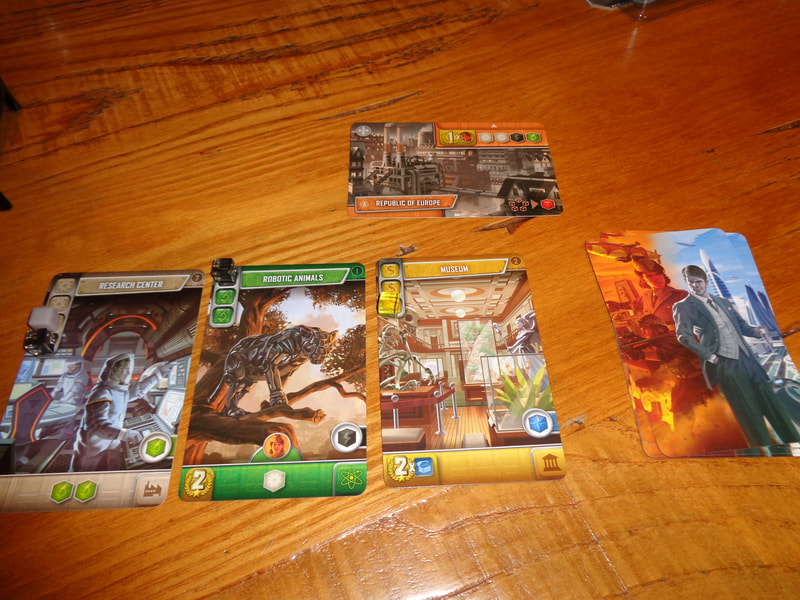
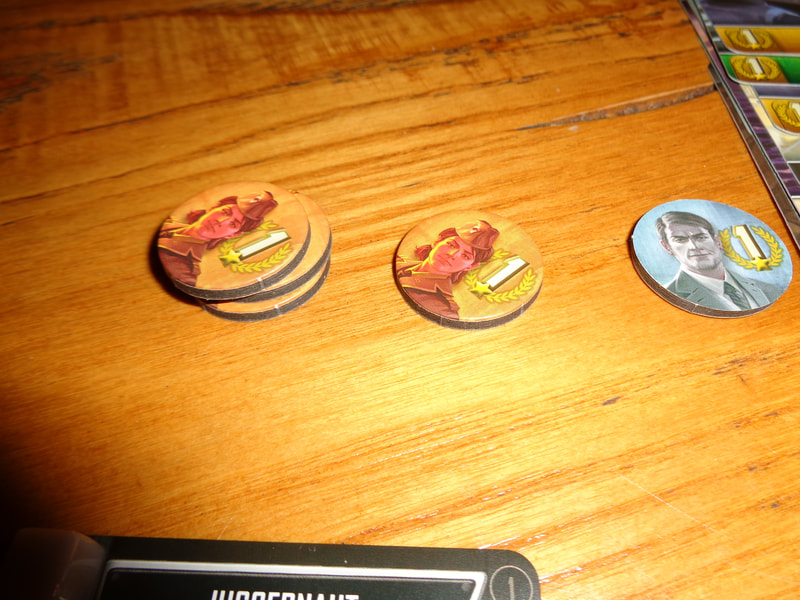
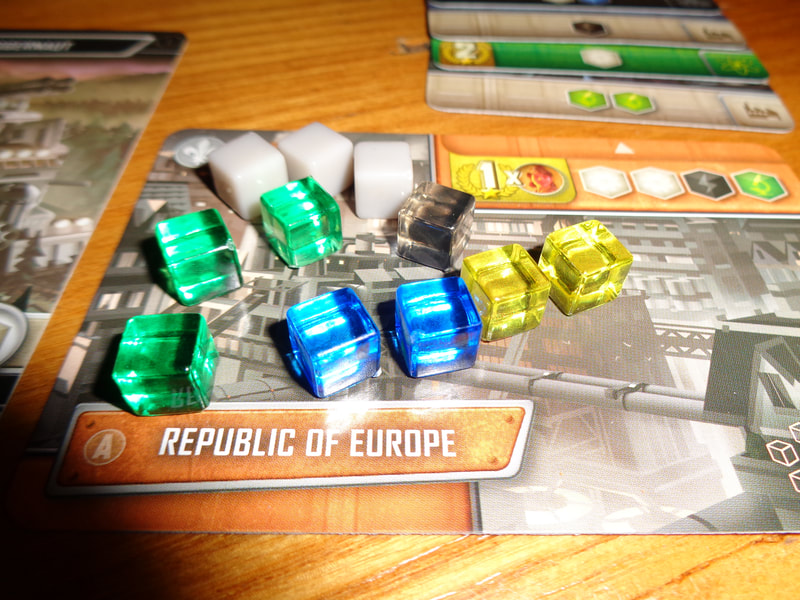
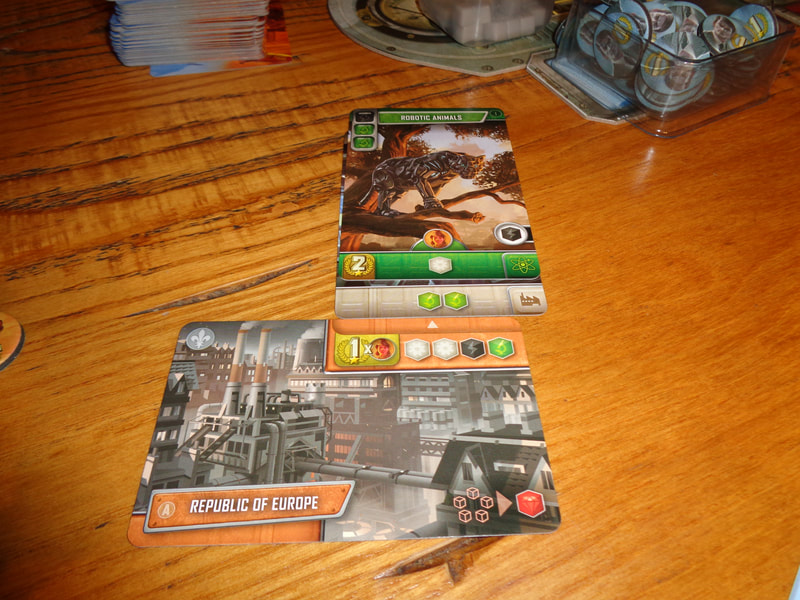
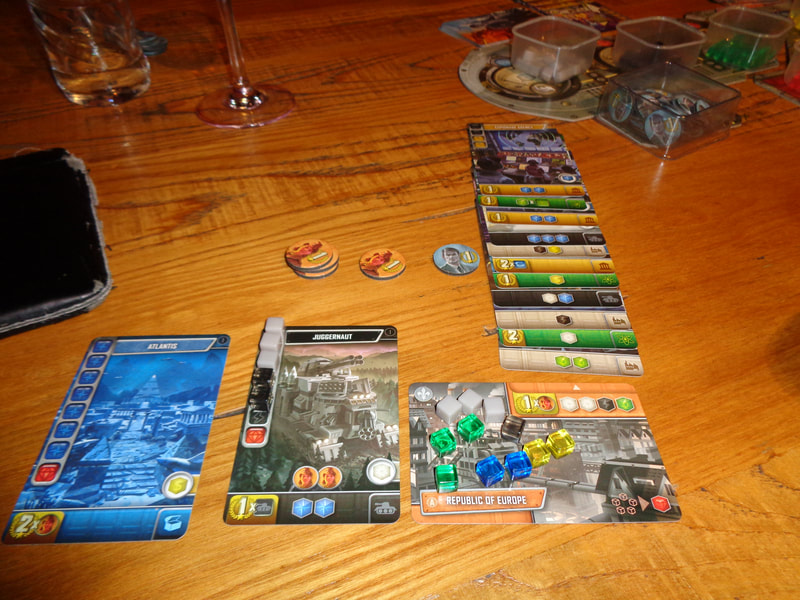
 RSS Feed
RSS Feed
